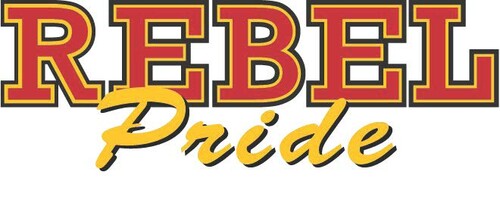Off-Campus Education Opportunities
Work Experience
WHY?
- Earn up to 15 credits towards your high school diploma
- Add to your work experience on your resumé
- Graduate with more than 100 credits to give yourself a buffer.
- Use work experience to find out if your potential career is the one you really want to follow. Even if you first go to post-secondary after the work experience, many employers will remember you once you begin looking for full time jobs in your field.
WHERE AND WHEN
- Part time job placements (fast food, restaurants, retail, trades etc!)
- Volunteer (hospitals, care homes, animal shelters, food banks etc.)
- During school hours, after school, weekends, and holidays. You may not earn work experience credit for work between 10 p.m and 7 a.m.
HOW?
- Complete the required HCS 3000, 1 credit course.
- See Bryan Pritchard (or your school secretary) for an off campus agreement form to fill in. Your hours will count when you return the form either in-person or by email. You need to submit monthly hours in person, by email, or text a picture of them to Bryan. We encourage the emailing and texting in order to reduce paperwork. We can also provide you a time sheet if you need one.
EVALUATION
You need to work or volunteer a minimum of 75 hours; this will give you 3 credits. If you work at more than one place we can combine the hours.
- Bryan Pritchard, the off campus education teacher, will complete an evaluation with your employer.
Registered Apprenticeship Program (RAP)
Benefits for Students
- Get a head start on a trade. Most trades are 4 years in length and 1500 hours of work each year. Hours that students work in high school could count towards that first year and beyond.
- Earn significant high school credits and earn while you learn.
- Build your skill set and your resume. Even if you do not pursue the trade after high school, you developed a skill set of critical thinking, learning to work safely, following multiple instructions, developing a strong work ethic etc. that employers are looking for.
- It's an opportunity to dovetail career paths and education types: for example, become an electrician (college) and an electrical engineer (university). What an excellent way of combining the practical and theoretical ways of learning.
High School Credits - RAP
- Up to 40 high school credits can be earned. This would be 1,000 hours of work. Students need to work a minimum of 125 hours which would give 5 credits.
- You meed to submit monthly hours in person to Bryan Pritchard or email/text a picture of them. We encourage the emailing and texting in order to reduce paperwork.
- You must be 15 years of age and in grade 10 at a minimum to enter the RAP program. Students find their own employment. Apprenticeship is a large and personal decision - we do not force students on to employers.
Information Links for students
- Visit www.tradesecrets.alberta.ca for a detailed description of all 50 trades in Alberta
- View business websites to see what the companies do.
Green Certificate
The Green Certificate Program allows grades 10-12 students to earn up to 16 high school credits.
Possible specializations:
Beekeeper production
Cow calf breed production
Dairy production
Equine production
Feedlot beef production
Field crop production
Greenhouse production
Irrigated field crop production
Poultry production with choices of broiler chicken, broiler hatching egg, table egg or turkey.
Sheep production
Swine production.
Description
- Find a farm, ranch or greenhouse that will provide the hands-on training (this program is learning by doing). This training may occur on a home farm, etc.
- Complete the required 1 credit safety course, AG 3000 - see your school's work experience practitioner (Bryan) or CALM teacher to gain access to this course.
- Contact Bryan Pritchard to sign up for Green Certificate, and to arrange a farm safety visit.
- Receive the training manual, work, learn and have your skills signed off by your trainer.
- You must complete at least one test in a year. Tests are all oral and are given at set times throughout the year.


